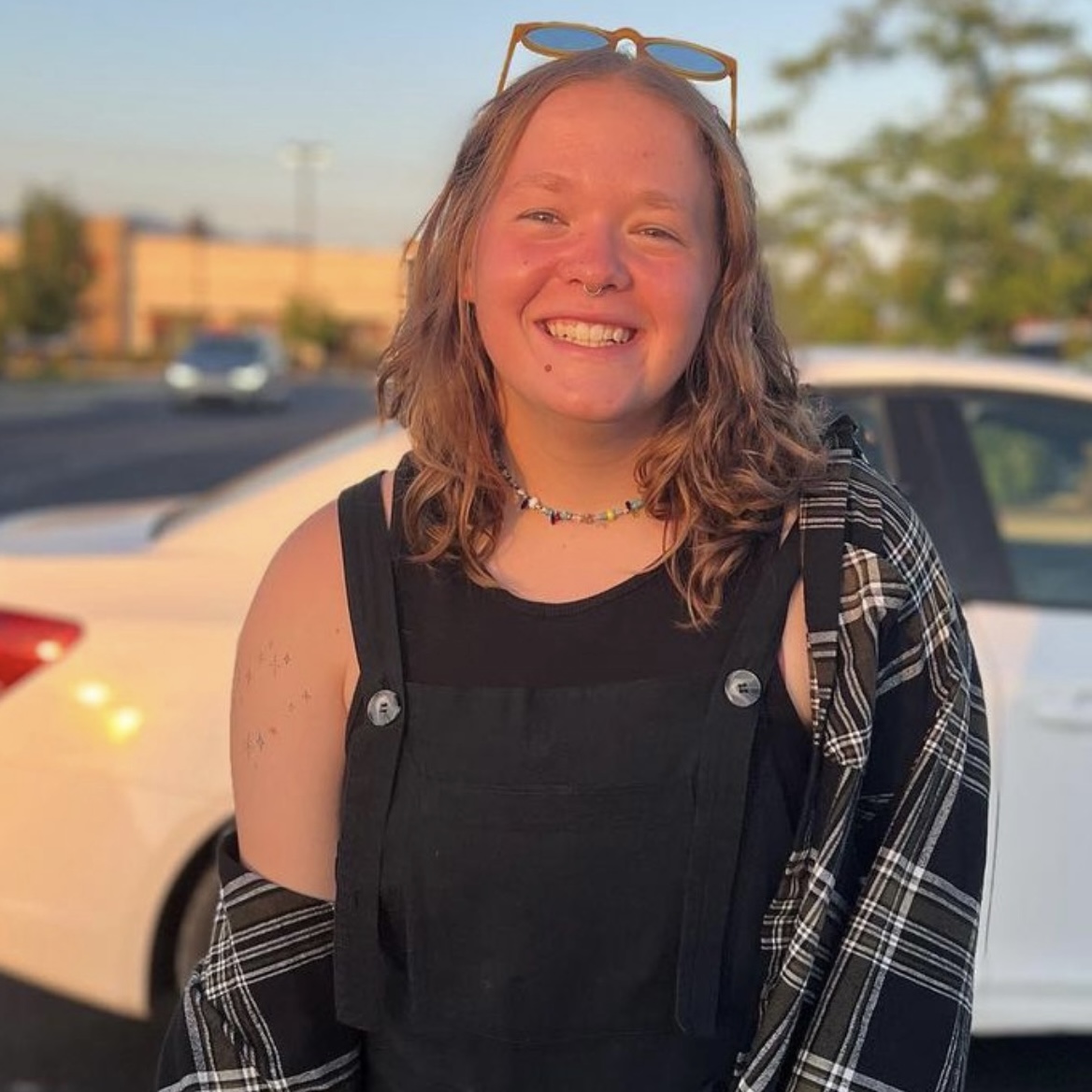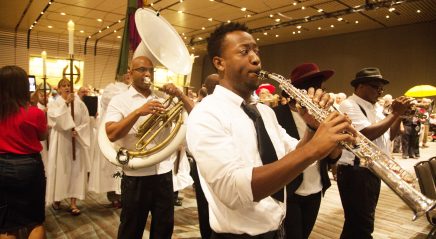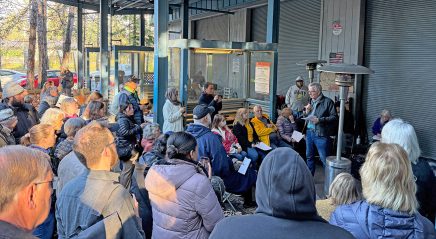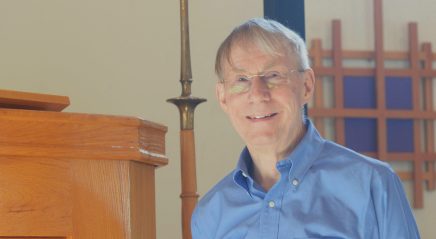June is Pride Month! We are excited to affirm and embrace everyone in the church and to amplify the voices of our ELCA siblings in the LGBTQIA+ community. Today we are speaking with Brittney Shipman (she/her).
How are you connected to the ELCA?
My connection to the ELCA is quite the ride. I was raised Lutheran my entire life but not in the ELCA specifically. I found the ELCA again when I was in college and started to feel a call to ministry, but the tradition I was raised in did not allow space for my identity within the church. I am currently a student at Wartburg Theological Seminary in the [Master of Arts] program, which has been such an affirmative experience, full of discernment. … The ELCA is the first place where my identity [as a queer person] was not only accepted but also celebrated. I have found a sense of acceptance here that seemed unheard of anywhere else in my church experience, and that has meant more than any words could express.
How does your faith shape and affirm your person/identity?
My faith is what I feel allows me the strength to use my voice in spaces and places where the queer community has often been silenced. My faith is what allows me to take up space and feel that I deserve to do so as a beloved child of God and that my queerness is celebrated within that. My identity as a queer Lutheran gives me the confidence to speak my truth and to name things for what they are. One thing that comes to mind is a blessing from Kate Bowler, republished with permission:
For Truth-Telling—However Bitter or Sweet
Blessed are you, resisting the urge to reframe. You who are sick and tired of silver linings.
Blessed are you, speaking honestly about what is right in front of you:
This is hard.
Things might not get better.
This really has gone horribly.
There may not be a different way.
You who risk honesty,
especially when the world around us craves a brightside.
Blessed are we in our gratitude and our pain,
our pleasures and our limitations.
Blessed are we, the truth-tellers.
Whose candor finds a chorus that echos back: “Same.”
May we feel ourselves answered
by this language of love,
changed where we can,
and confirmed where we can’t.
But loved loved loved all the same.
Entering into spaces of justice and advocacy are prime examples of how I live out my faith and identity as a queer Lutheran. This blessing by Kate Bowler captures this feeling of seeing and naming that I have been empowered to step into through my faith.
How can the ELCA better support and uplift the LGBTQIA+ community?
When I think of what further support could look like, I immediately think of Reconciling in Christ and what that status means for a congregation or campus ministry. RIC is something I hadn’t heard of until college, and this explicit language of “open and affirming” is what made it safe to enter into these spaces again.
In terms of what the ELCA can do to further support, I think of all the spaces within this church that are still very much not open and affirming. I, like all of us, don’t have a clear-cut answer for what it looks like to move toward this growth in a faster way, but [I] think it is vital that we do our very best to attempt. There is a time to walk alongside at a leisurely pace and there is also a time to say, “The time is now.”
I think of the life that Jesus lived and see a lot there in terms of not waiting for change, because there is not going to be any perfect moment, and each moment we wait, more people are affected negatively by patterns of oppression and marginalization. There is also a fine line when it comes to asking this exact question of how to do better. Allowing communities like this one the space to voice experiences is vital, and it is also not the job of any marginalized group to do so. There is much to be said about simply owning shortcomings, and this concept of truth-telling is a form of doing better. As someone who has felt the sting of church communities that do not affirm my identity, this honesty and willingness to acknowledge areas of potential growth are what allows me to have hope.
What advice would you give pastors, deacons, bishops or other leaders in the ELCA who are hoping to see more of the LGBTQIA+ community feel affirmed and accepted in the church?
The biggest piece of advice I would give is actually something I learned this past semester in seminary during my pastoral care course with Rev. Dr. Nate Frambach. Something that he made known from the very start of the course is the importance of listening to hear and not just to respond. He would say “Listen, listen, listen, then speak.” Ensuring that those in the LGBTQIA2S+ community feel affirmed and accepted in the church, for me, starts with feeling heard. Practicing close listening is a form of care that extends far beyond the church and is the one piece of advice that comes to mind.
What gives you hope?
What gives me hope are the people of this community within the ELCA who are vocal and live their truths proudly. This representation alone is something that brings hope, but it is also so much more. I also feel hope in the ways that lament can be shared within these church spaces, because queer joy does not often exist without queer grief. The duality of grief and joy is ever present, and the acceptance felt within this is seeping with hope for what the future of the church can be.
What do you pray for?
This Pride month I pray for the dualities that exist in this beautiful community of people. I pray for the ways that grief and joy dance side by side in this beautiful and excruciating life. I pray for the ways we celebrate the progress made and also our moments of lament for the hardships we do not deserve but face so bravely. I pray that it is known to all that God exists outside of the bounds of our human understanding and that nothing, not even our queerness, could make God love us any less.
____
Blessing excerpted from The Lives We Actually Have by Kate Bowler and Jessica Richie. © 2023 by Kate Bowler. All rights reserved. No part of this excerpt may be reproduced or reprinted without permission in writing from the publisher. This poem is a copyrighted work, so you will need Bowler’s written permission to quote it in its entirety. Failure to secure this will expose the ELCA to litigation.









